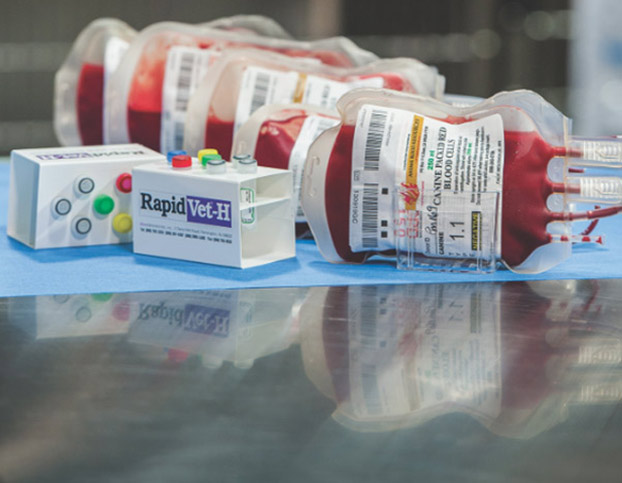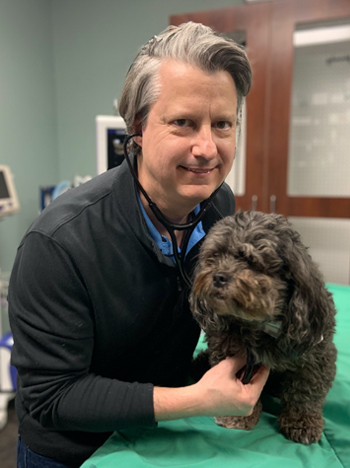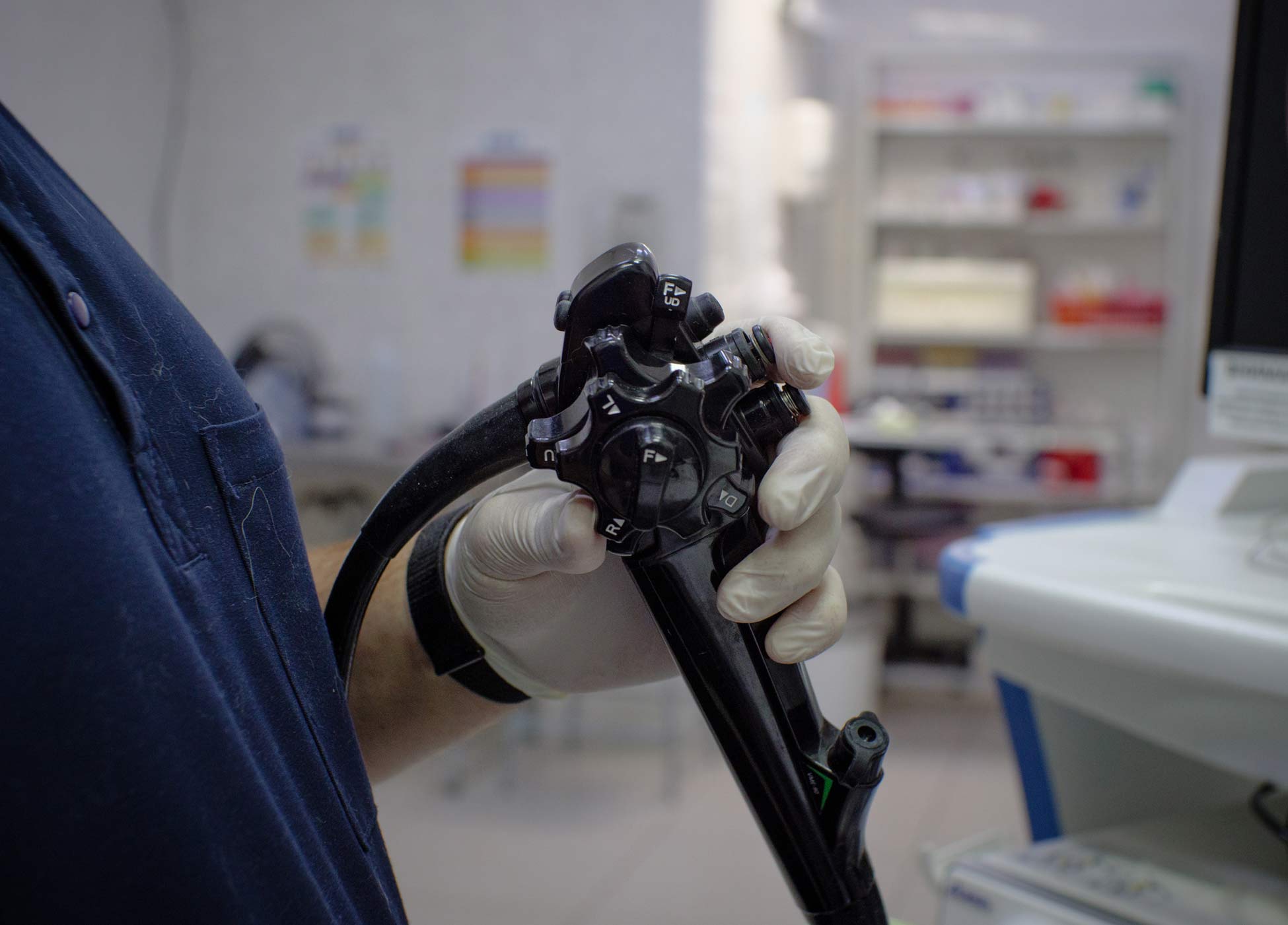Blood sustains life. It is what carries oxygen, nutrients, and other essentials to every living cell within the body. Blood is composed of red blood cells (RBCs), white blood cells (WBCs), platelets, and plasma (the liquid portion of blood). Blood also carries waste products to be filtered out of the body, transports hormones to target organs, and helps regulate body temperature.
Some patients do not have enough red blood cells (RBCs), which is called anemia. This can be due to several reasons: genetic disorders, destructive immune disorders, hemorrhage, tumors, viruses, bacteria, toxins, and even side effects from certain medications. So, what do we do to help patients with anemia? Just like humans donate blood for those in need, our pets can do the same for each other.
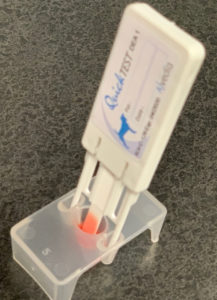
Just like people, dogs and cats have different blood. Felines have 4 different blood types; type A, B, AB, and Mik. Canines currently have more than 12 recognized blood groups, called dog erythrocyte antigens or DEAs. The blood type is important to determine prior giving a patient a blood transfusion. Transfusing incompatible blood types could result in transfusion reactions, which can be fatal. We also want to ensure the donated blood is free from disease. Pets who are potential blood donors should have infectious disease testing, in addition to blood typing, performed prior to becoming a donor.
Dogs considered for blood donation should be between the ages of 1-8 years old, well-mannered and weigh at least 50 pounds. A veterinarian should perform a physical exam, complete blood count (CBC), and chemistry profile. In addition, infectious diseases screened for include Babesia spp., Ehrlichia spp., Neorickettsia spp., Leishmania spp., Trypanosoma cruzi, Brucella canis, Mycoplasma hemocanis, Bartonella spp., andheartworm.
Potential feline blood donors should also be between the ages of 1-8 years, weigh at least 8 pounds, have a physical exam, CBC, and chemistry profile performed.
Infectious disease screening for feline donors should include Feline Leukemia Virus (FeLV), Feline Immunodeficiency Virus (FIV), Hemoplasmosis, Bartonellosis, Cytauxzoonosis, Ehrlichiosis, Anaplasmosis, and Neorickettsiosis. Screening all donors prior to donation ensures a decreased risk of disease transmission via blood transfusion.
Where do we get donated blood to give to patients? We obtain blood from two places: we operate a blood donor program within our hospital where potential donors are typed and screened for infectious diseases. Having these pets in our community allows us to give patients in need fresh whole blood. We also have access to larger blood banks where we are able to purchase other screened blood products, such as packed red blood cells and plasma, which are commonly referred to as “component therapy” because we are giving a specific blood component.
If a patient is in need of a transfusion, skilled veterinarians and veterinary technicians are trained to administer and monitor patients every step of the way. Blood products are stored in refrigerators, and plasma is stored frozen. Transfusion volumes are calculated based on the patient’s body weight and other needs. These products are then connected to a patient via an in-line filter intravenous administration set. The filters are required to protect patients from large proteins, precipitates, or clots that may be within the blood product. Blood products are not meant to be given rapidly and usually given over 4 hours. This ensures reduced risk of bacterial growth within the blood as the blood is warmed to room temperature. During the transfusion, patients’ vital signs are measured every 15-30 minutes to be sure that a transfusion reaction (ie. patient’s immune system is “rejecting” the blood) is not happening.
Blood product transfusion can be a life saving measure for pets. Steps should be taken to ensure that if a transfusion is needed, it is being completed in the safest possible way.
If you would like your pet to become of a blood donor volunteer, please contact us!

Author:
Jordan RVT, VTS, (SAIM)
Ph: (912) 721-6410
Contact Us
